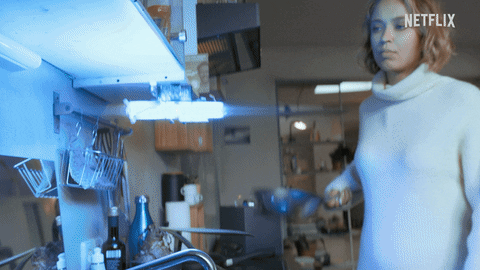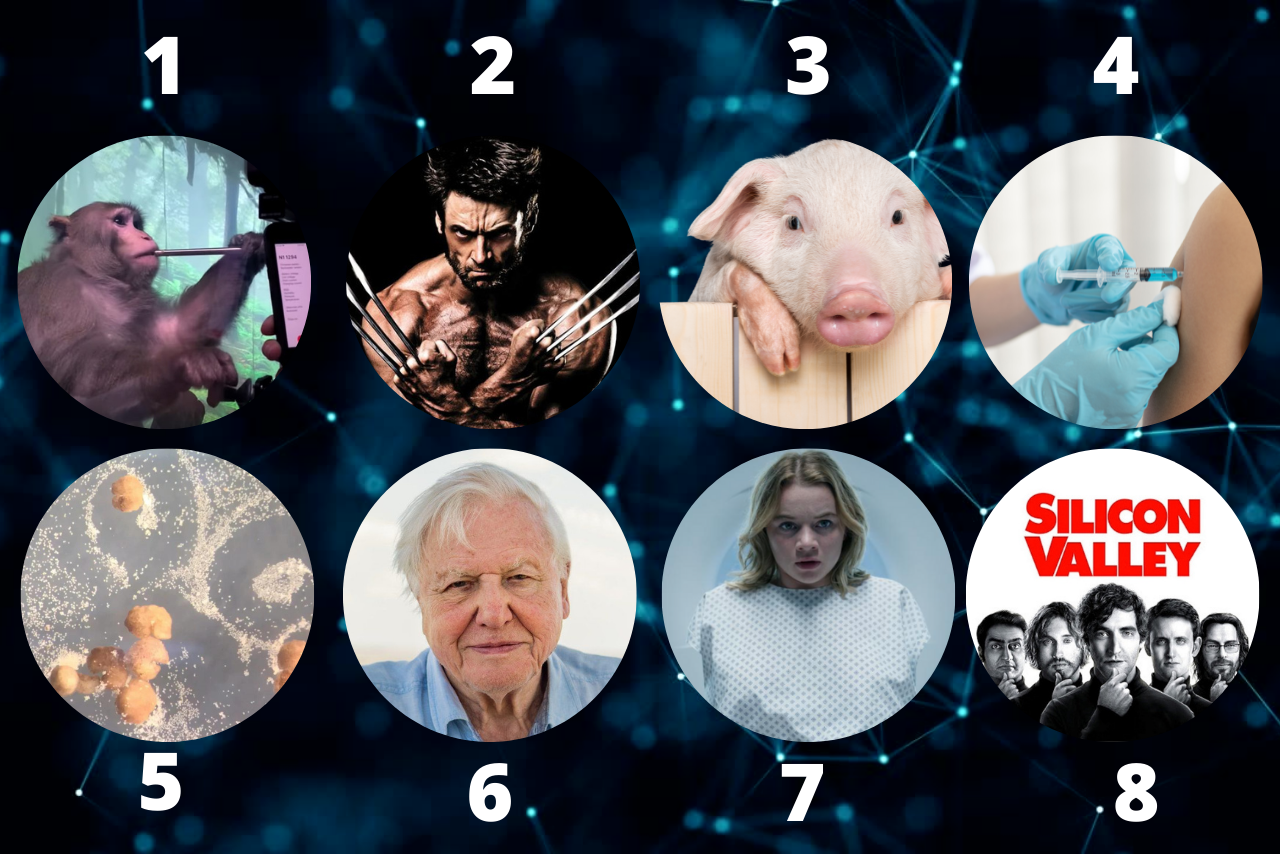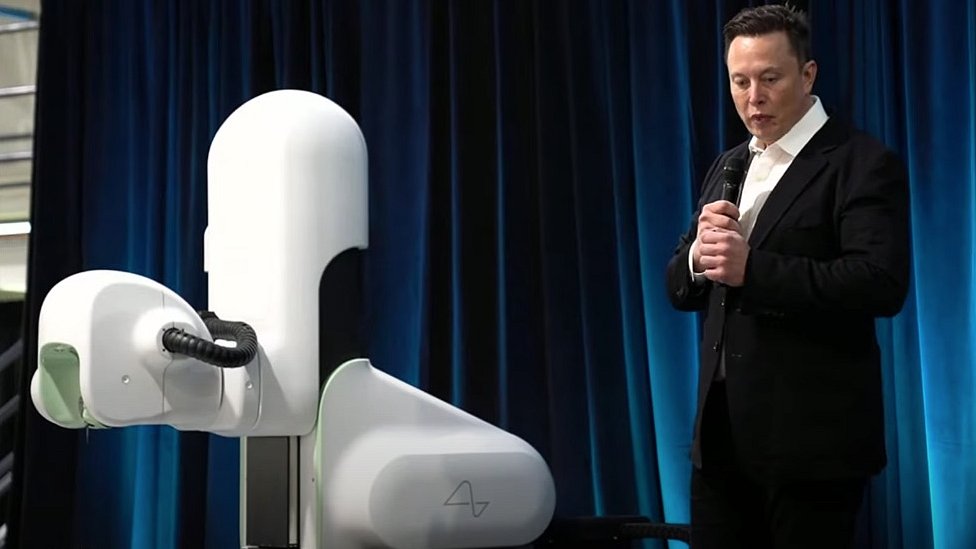Wow! The year 2021 is almost over. I don’t know about you, but with the pandemic, the year feels like a blur. Sometimes I think: ‘Did the pandemic start this year or last year?’ Aside from COVID, there was still plenty going on in the world. And you can find all kinds of reminiscences, from politics, to sports and showbiz.
Related articles are: technology trends 2025, 2024, 2023, and 2022.
Developments 2021
Below, I therefore share the eight moments that stood out to me. From brain games to genetic modification in humans and from the climate crisis to the promise of a better internet.
Anyway, these are the moments and developments where I shouted ‘WTF!’ over the past year.
Mind games
Monkey Pager, a nine-year-old macaque, played the game of Pong with his brain in April 2021 using Neuralink brain implants. Elon Musk, in addition to owning companies such as Tesla and SpaceX, is also deeply involved in Neuralink and has responded elatedly. He tweeted that in the future, this technology will allow a paralyzed person to operate his or her smartphone faster than someone without paralysis in the fingers. For me, an implant in my brain really makes us a cyborg.
Watch my video about Neuralink, with Pager at 6:51 minutes:
Procrastination of X-Men
The World Health Organization WHO published their long-awaited advice on genetic modification in humans in August 2021. Not surprisingly, they state that this technology should really only be used in healthcare to cure patients. No mutated superhumans like in the X-Men.
The question remains, however, what the status of this report is. It is not clear who, when and how these guidelines are monitored and what happens if a country does not follow them. So who knows, maybe the real Wolverine will be born somewhere in a couple of years.
Xenowhat?
In September 2021, surgeons in New York were able to link a genetically modified pig kidney to a human for the first time. The medical term for this is xenotransplantation. The subject was a brain-dead woman with renal impairment. The kidney was outside the body and attached to the woman’s blood vessels.
To prevent rejection by the human body, scientists had manipulated the pig’s genes. Experts call the operation a huge breakthrough. I see the experiment as an exciting step towards a possible solution to the donor shortage.
Smarter kid with mRNA
A number of COVID vaccines use mRNA. The genes are not modified, but the mRNA molecules encourage body cells to produce certain proteins. Pharmacists are now also looking at this mechanism for treating HIV and cancer.
I think further from the perspective of biohacking, my own specialism. What if mRNA molecules make the leap from cure to improvement? In a fictional piece, The Economist explores this scenario: biohackers inject themselves with mRNA molecules for improvement. Think of better fitness for athletes at the Paris Olympics 2024, superior memory for students or expectant mothers who want a higher chance of having smarter children.
Who knows? Perhaps the pandemic is a kind of blessing in disguise for these biohackers after all.
Reproducing living robots
Xenobots are living robots, made by scientists from unmodified skin and heart cells from a frog. In December 2021, a team of researchers from the University of Vermont announced that these robots reproduce.
They do that in a completely new way. The robots collect single cells in the culture dish and assemble them into a new constellation. The scientists developed the (biological) structure of the collected xenobots on the basis of artificial intelligence.
As far as I’m concerned, this is an exciting example of a completely new domain that is created by the intersection of bio- and information technology.
From wizard to prophet
The Glasgow Climate Change Conference (COP26) took place in November 2021. In recent years I have become increasingly aware of the bad state of the earth and nature. For that reason I have started to eat almost completely vegetarian and I prefer not to fly anymore.
The climate crisis is taking on an increasingly prominent role in my work, for example in the keynotes I give. Because in addition to the catastrophe for animals and population groups, the climate crisis also has consequences for the physical and mental condition of humans.
Broadly speaking, there are two groups in this debate. The wizards believe that technology can solve the climate crisis. The prophets believe that we as humankind must change. A few years ago I was a wizard, but I’m shifting more and more to the other side.
In addition to (technological) solutions, I think that we as humans should abolish our imaginary boundary with nature. We are not outside or above it, but we are in the same ecosystem. In addition to scientific progress, we therefore also need a sense of responsibility and imagination. I want to focus more on the latter in the coming year, more about that later (cliffhanger!).
Biohacking in Popular Media
Although the Cyberpunk 2077 game came out at the end of 2020, I played the game a lot in the early months of 2021. What particularly appeals to me in the game are the various types of upgrades that you can buy. As a player, you can hack your opponents, you have titanium bones to carry more stuff, or you can recover faster with an upgrade to your blood vessels.
In addition, season 2 of Biohackers was released on Netflix in July 2021. It’s not as good as Dark, another German series on Netflix, but quite nice. In addition to a good impression of the city of Freiburg and silly student jokes, the series gives a good picture of biohacking, its potential, risks and moral dilemmas.
Okay then. The nicest scene is that Ole controls a drone in the house with a brain-computer interface.
Spoiler alert, this is how the scene ends:

Web 3.0
Silicon Valley, the breeding ground of much big tech in the United States, has greatly influenced our lives in recent decades with the internet, smartphones, apps and social media platforms. What’s next?
A few companies that caught my eye:
- The company Conception is investigating how they can make egg cells from women’s blood cells. The founder’s vision is that a gay or lesbian couple can eventually have their own child together, with the genes of both parents.
- The company Altos Labs develops technology for rejuvenation. Amazon founder Jeff Bezos is reportedly one of the major investors.
- Facebook, nowadays Meta, has stopped researching brain-computer interfaces. They are working on a wristband that picks up signals such as a mouse click, even before you actually move those muscles.
- Kernel, a company that focuses on brain-computer interfaces, presented their two products Flux and Flow. Flux measures the electromagnetic activity and Flow measures the oxygen content of the blood vessels in the brain.
In addition to these individual cases, a few terms are buzzing around at all technology companies: NFTs, DAOs and Web 3.0. It is beyond the scope of this article to explain all these concepts, but the promise is great.
Take DAOs, decentralized autonomous organizations, which some say have the potential to set up organizations and other collaborations in a better way. With more rights and benefits for employees and the community. Think of a kind of Uber, but with all drivers as employees and shareholders. Or Facebook, where you are not only a user, but can also vote on the rules on the platform.
Only the feeling comes over me: with the rise of the internet or social media platforms, these kinds of hopeful stories were also dominant. Shall we do better now? Or will it remain difficult for us as human beings to break free from capitalism and the tendency to compete with each other?
Follow me on my journey of discovery!
Are you curious about all these trends and developments? Then keep following my work, for example via my newsletter, this blog or on YouTube.
And finally: wishing you a very beautiful, surprised 2022 with many new ‘WTF’ moments!





Leave A Comment